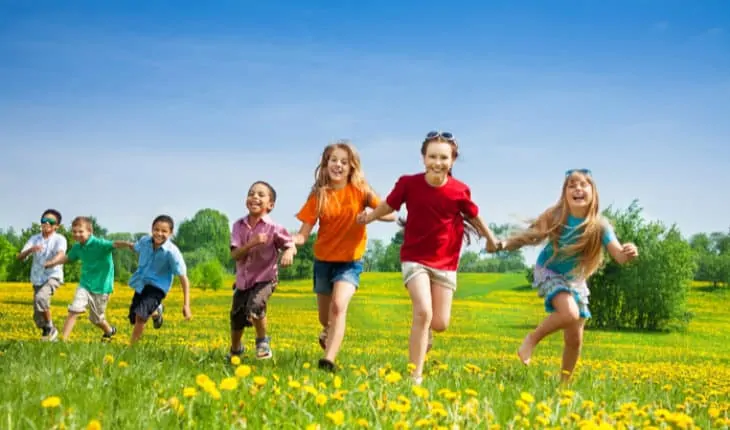It’s child’s play: how parents can help young children adjust to post lockdown life – five tips from a Priory psychiatrist
- UK schools’ lockdown has had a significant impact on children’s mental health
- But the loosening of lockdown restrictions increases opportunities for children to play, helping them adjust to the ‘new normal’
- Parents playing alongside children enables young people to learn how to control emotions including aggression and impatience
- Priory child psychiatrist offers parents five tips for making the most of play during the summer holidays
Delays in re-opening schools post lockdown left the Children’s Commissioner for England warning that most children will have missed nearly six months of formal education, “the biggest disruption since the Second World War”.
And charities including Save The Children say that almost one in four young people living under Covid-19 related restrictions were dealing with feelings of anxiety; many were “at risk of lasting psychological distress”.
Priory experts counselling young children agree that the long period of isolation has had a significant impact on young people’s mental health.
But play has great therapeutic value, they say, in enabling children to adapt to changes caused by the pandemic, and in helping facilitate a fresh understanding of sharing, being considerate to others, and looking after people – all of which will be helpful before they return to school in September.
Dr Hayley Van Zwanenberg, child and adolescent psychiatrist at the Priory’s Wellbeing Centre in Oxford, said; “I am seeing more and more young people becoming very low in mood; they feel their plans for the summer cannot come to fruition and that they have little to look forward to. They worry they may have lost friendships and got behind with school work. Others are finding their anxiety is increasing about socialising, and being outside their house and leaving family members indoors.”
She says that “positively encouraging” children to play and exercise together will bring significant developmental benefits; “For young children, time with their friends is really important; they need to be developing their social skills and playing is a way of them tackling difficult times. For example, when they play they can become superheroes and feel invincible.
“Play has so many benefits for young people, including brain development, language development, and helping them cope with stress, and it helps them with their physical development as obviously they jump and run around.”
Parents can help their children get the most out of play this summer by making sure it includes a variety of different types of activity, and by taking a proactive part in it. Dr van Zwanenberg has five top tips for using play to help children re-adjust to life post lockdown:
1. “Children learn lots from role-playing with adults or other children. Parents can role play certain scenarios with their children, to teach them new social skills they might not have practiced for a while, for example; ‘Let’s pretend we are friends going to play at the playground and there is only one swing and we both want to go on it’. They can ‘role play’ how the child should respond and share. This sort of role playing can teach children so much. They have to solve a problem and think about what is right and wrong and fair, and communicate all this.
2. “Parents can role-play scenarios that are going to be different now than when they were pre-lockdown, for example going to the supermarket and having to walk one way around it and leave space between themselves and others in the queue. It will then not be so confusing for children when they experience this.
3. “Buy ‘social story’ books. These are often used for young people on the autistic spectrum. They describe common social scenarios young people might find themselves in, and how they should be handled. They lead to discussion and could be helpful for young people if parents feel they will struggle with a return to normal social situations or changed ones.
4. “Turn taking is an important part of play for young children and often young people find this hard. I would suggest playing family games that involve turn taking so young people get used to coping with this again.
5. “’Emotion reading’ games can be fun and useful game to play with your child. Write down an emotion on a piece of paper and take it in turns to act them out with body language and facial expressions. Often difficulties in the playground occur due to young people misreading each other’s body language.”
- Supporting back to school anxiety in a time of COVID - 3rd September 2021
- Back to school anxiety - 4th September 2020
- Coping strategies for children post lockdown - 22nd July 2020







